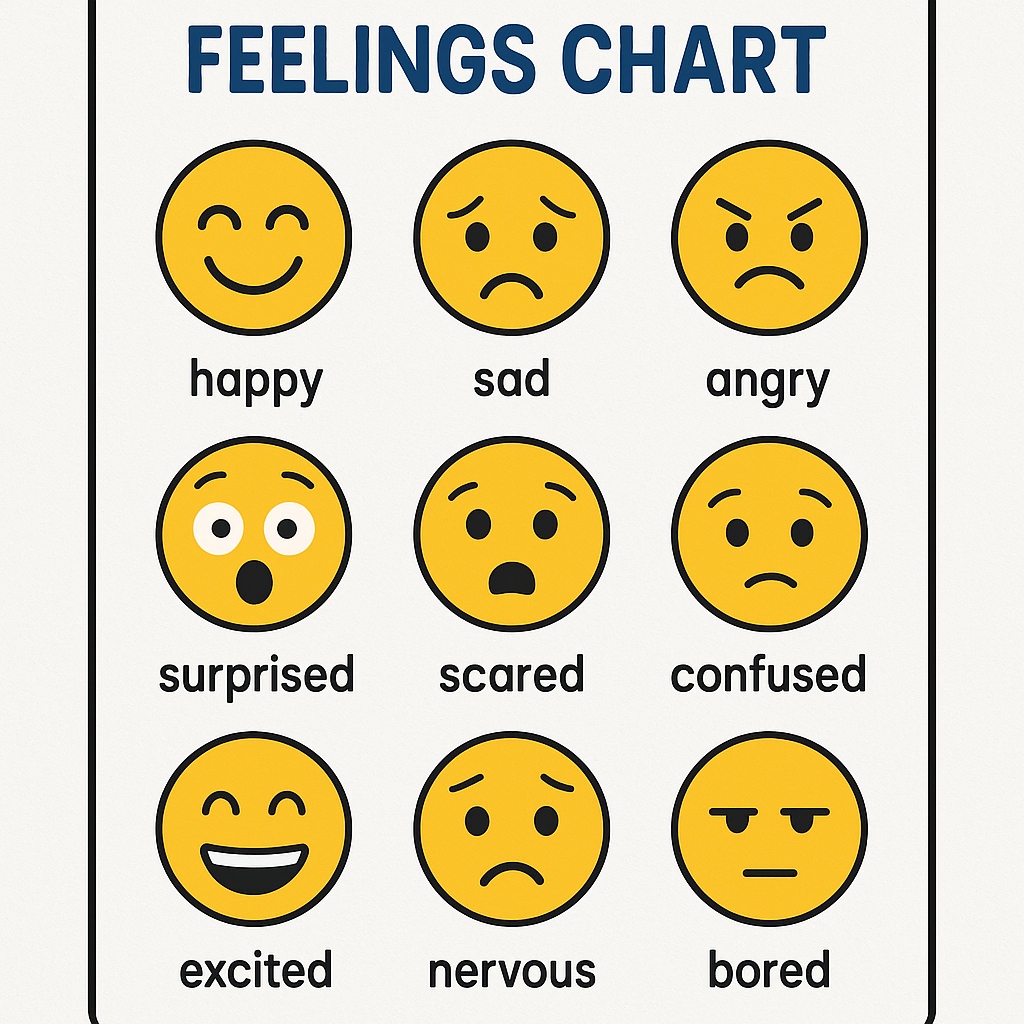Why Emotions Are Important in Early Childhood

It happened in a matter of seconds.
Three-year-old Rita wanted the red cup. But her brother had it. What followed was not a calm request, but a tearful protest. She cried, kicked, and screamed while her parents stood confused, not over a broken cup, but a colour preference.
One parent sighed, “She’s so dramatic. She’ll grow out of it.”
But will she? And more importantly, should we wait for our children to “grow out” of their emotions?
As it turns out, childhood emotions are not something to ignore, suppress, or rush through. They are the foundation of lifelong mental health, learning, and relationships. In this post, we’ll explore why emotions matter deeply in early childhood and why paying attention now pays off for years to come.
🧠 Emotions Are Central, Not Extra
It is easy to treat feelings like the inconvenient, messy, and unpredictable background noise of parenting. Emotions are not a supplementary part of childhood development. They are necessary for healthy growth and development.
Here’s why:
- Emotions drive behavior: Children who hit or hide are not acting out; they are expressing unmet emotional needs.
- Emotions affect learning: Children cannot access logic, memory, or focus when their emotional brain is overwhelmed or stressed (Center on the Developing Child, 2021).
- Emotions guide relationships: Early emotional experiences shape how a child connects with others, trusts caregivers, and resolves conflict.
Emotional health is not separate from a child’s overall development. It is their development.
🧠 The Brain and Feelings Are Best Friends (or Foes)
During the first five years of life, a child’s brain is developing faster than at any other time. The parts responsible for managing emotions (the limbic system) and for higher thinking (the prefrontal cortex) are forming essential connections.
When we respond consistently and calmly to a child’s emotional needs, even tantrums, we help wire their brain for regulation, resilience, and empathy (National Scientific Council on the Developing Child, 2004).
When we ignore, shame, or rush children out of feelings, their emotional system may develop in fragmented ways, making self-regulation and relationship-building difficult later on.
💞 Emotional Safety Is the Real Security
Many parents focus on providing physical safety. They lock the doors, provide healthy food, and install car seats. But emotional safety is just as vital. It means children know:
- My feelings are okay.
- I can express myself without fear of punishment or rejection.
- Someone will help me when I feel overwhelmed.
This kind of emotional safety forms the foundation of secure attachment, which has been linked to good mental health, academic performance, and social confidence well into adulthood (Center on the Developing Child, 2021).
🎭 Emotional Development Predicts Future Success
We often equate school readiness with knowing letters and numbers. But research shows that emotional skills are better predictors of long-term success than IQ or early academic ability (Denham, 2006).
Children who can:
- recognize and name their emotions,
- pause before reacting,
- understand how others feel,
are more likely to be academically capable, do well in school, build friendships, and navigate challenges with confidence.
🛠 What Parents Can Do
Here’s what emotional support looks like in everyday parenting:
- “You’re really angry that your block tower fell. That’s so frustrating.” (Validation)
- “Let’s take deep breaths together to calm our bodies.” (Co-regulation)
- “It’s okay to be upset. I’m here with you.” (Emotional presence)
You don’t have to have all the answers. You just have to be available and attuned.
Feelings Are the Language of Childhood
When a child says, “I’m scared,” or cries when you leave the room, they’re not being manipulative. They are communicating the only way they know how.
When we listen — actively listen — we teach children to trust their inner world, express themselves safely, and relate to others with compassion. Those lessons last a lifetime.
So next time your child sobs over the wrong color spoon or hides during a thunderstorm, pause before brushing it off. It’s not just a phase. It’s the start of something much bigger: their emotional story.
And you get to help write the first chapters.
📌 Footnotes
- <a name="footnotes"></a>National Scientific Council on the Developing Child. (2004). Children’s Emotional Development Is Built into the Architecture of Their Brains.
- Denham, S. A. (2006). “Social-emotional competence as support for school readiness.” Early Education and Development, 17(1), 57–89.
- Center on the Developing Child at Harvard University (2021). How Early Experiences Get into the Body.